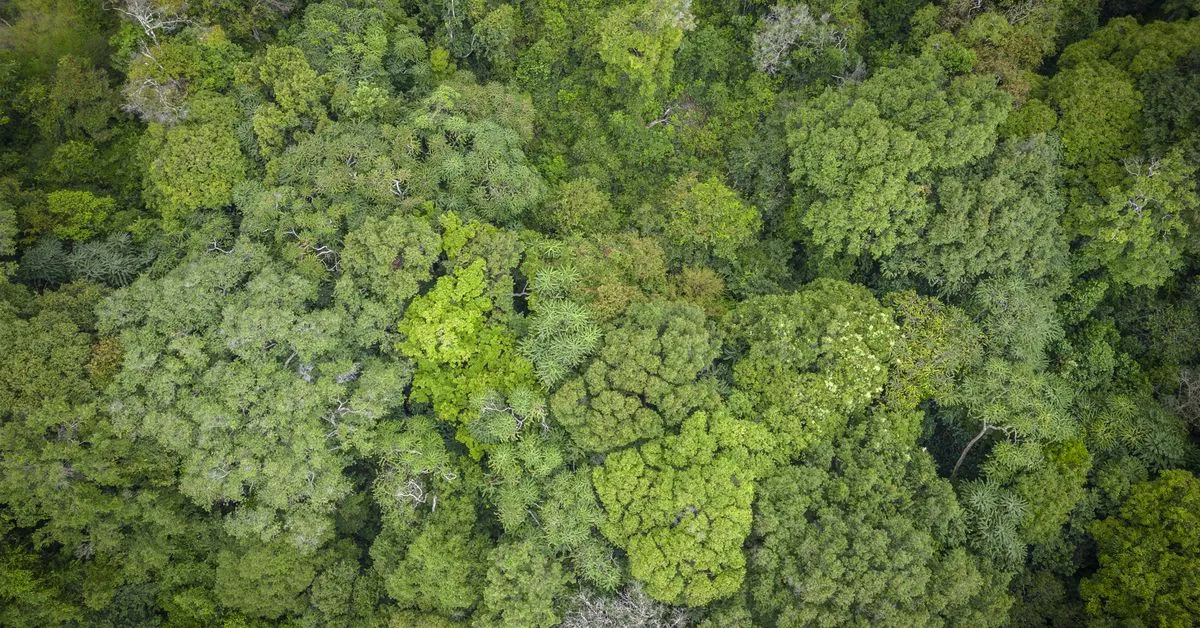yay, even more acres of sterile monoculture tree farm that burn even hotter when the wildfire rips through …
(yes, replying to myself)
- this would be so easy to do at a corporate level
- something along the lines of Miyawaki forests
- more variety of trees (just say “no” to monoculture)
- more trees
- less space
- less maintenance (allow the undergrowth to grow in)
- something along the lines of Miyawaki forests
- but no corporation would do this
- tree farms allow them to double-dip – claim the carbon credits AND harvest the timber
- requires them to put in initial research into choosing native species
The research is already done. All they need to do is call a local university agriculture extension where they are considering a project.
- this would be so easy to do at a corporate level
Soil has a saturation limit beyond which it can’t absorb more carbon - eventually organic matter in the soil will decay and release CO2 at the same rate that new organic matter can be added. Trees only hold on to carbon temporarily, until they die and decay and the carbon is released back into the atmosphere.
Turning a field of grass into a forest might delay the impact of one year of energy use for Microsoft, but its not a sustainable practice. How will they delay the impact the next year? What’s the plan for when that carbon is inevitably released back into the atmosphere as the trees decay?
Planting trees as a means of carbon capture is snake oil, and I believe the likes of Google and Microsoft are too smart to fall for it, so that begs the question - what’s their true motive for doing this?
-
Planting trees has far greater benefits than just carbon capture.
-
At best they’re deluded, at worst its green washing with a side effect of free trees.
So the thing about trees is, there are right ways and wrong ways to plant them. It should be obvious that plantng a tree in a desert won’t just lead to a forest, but the same is true to a lesser degree in most locations. It is necessary to choose the right locations that will have water available, and good soil, and some other conditions for the trees to thrive.
Companies doing it will most likely just dump a bunch of seeds or saplings in an area that won’t support long term growth, claim the numbers, and then let the trees die off.
That is probably true.
Just “planting trees” can destroy local ecosystems too. Look what is happening with the Uruguayan native meadows transformed into forestry deserts.
-
Planting trees as a means of carbon capture is snake oil, and I believe the likes of Google and Microsoft are too smart to fall for it, so that begs the question - what’s their true motive for doing this?
Money.
Appearing to be eco friendly reduces the chances of regulations that would make them have to change their terrible polluting practices. Any kind of carbon offsets are a distraction to reduce public or regulatory pressures that end up costing money.
Maybe they plan on dropping the trees into a bog.
That might work for a little while, but I suspect there is an upper limit to how many trees a bog can absorb over a given time before it stops behaving like a bog.
hügelkultur → hügelcounty → hügelstate → hügelcountry
If the biomass inside hugelkultur garden beds didn’t decay, then it would just be a means of water retention. It does decay though, which enriches the soil but also releases CO2.
Hugelkultur can reduce demand for fossil carbon based fertilizer, but IDK if composting trees is economically viable without some level of carbon tax, or even logistically viable for meeting demand at the scale of modern, mechanized agriculture. It would be cool if it were though - paired with machines that run on liquid fuels created using renewable energy, fertilizer made from compost could be part of a zero net carbon system for growing food.





